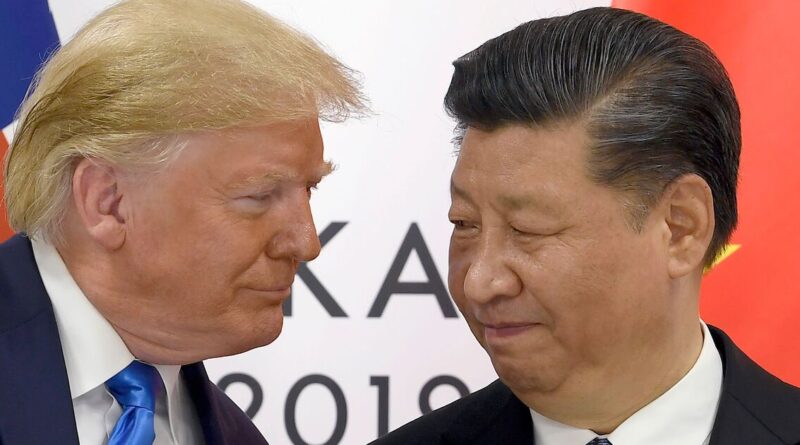Panic in China as £1.1tn debt bailout agreed in desperate bid to revive economy | World | News
China has unveiled a colossal £1.1tn bailout package aimed at propping up its sluggish economy amid global trade pressures, particularly from the United States after Donald Trump’s Presidential election win.
The announcement, made by China’s National People’s Congress yesterday, is primarily focused on helping local authorities restructure massive debts accumulated over years of investment in infrastructure and real estate.
However, the plan has left investors disappointed, with more direct support for household consumption to stimulate the world’s second-largest economy anticipated.
China’s Finance Minister Lan Fo’an said the government aims to stabilise local finances and refocus spending on essential public services.
He declared: “This is one of the largest measures we’ve seen directed at local government debt.”
In accordance with the bailout, Beijing will authorise local governments to issue bonds over three to five years to restructure an estimated 14 trillion Renminbi (Rmb), or yuan, in “hidden” debts.
The debt is largely the result of local authorities’ off-balance-sheet financing tools, which were heavily invested in the property sector and infrastructure but which have struggled since China’s real estate downturn.
Lan added: “We expect this restructuring to free up resources previously constrained by debt and allow local governments to focus on development and public welfare improvement.”
While the announcement was an important move, the markets responded cautiously. The renminbi weakened by 0.3 per cent to just over Rmb7.16 against the dollar, while yields on Chinese bonds fell slightly.
Mitul Kotecha, head of emerging market macro strategy for Asia at Barclays, said: “There’s a sense of disappointment.
“The housing sector needs serious structural reform.
“Without addressing these deeper issues, no fiscal package will entirely shield the economy from external shocks.”
Investors had hoped for measures which could bolster household consumption to increase domestic demand, Mr Kotecha explained.
He added: “The expectations were high for a massive stimulus package, but the result has been rather underwhelming.”
The plan authorises £660 billion in new bonds to tackle existing debt over the next three years, with an additional Rmb4tn reallocated from previously planned bond issues.
These moves will enable such authorities to consolidate debts previously held by their financing vehicles and directly assume responsibility for these liabilities.
Lan said this shift was expected to reduce borrowing costs by about £66 billion, making debt servicing more sustainable.
He noted: “We are intensifying countercyclical adjustments,” indicating that China may take further action depending on the outcome of future negotiations with trading partners like the US.
China is facing extra pressure with the prospect of renewed trade tariffs from the United States under Donald Trump’s administration. Trump has previously signalled a willingness to impose a 60 per cent increase in tariffs on Chinese goods, which analysts say could further damage China’s export-dependent sectors and cost the economy several percentage points of growth.
Larry Hu, an economist at Macquarie, said: “The policy goal isn’t about reflating the economy but stabilising it amid increasing challenges.
“The measures are meant to sustain growth rather than surge forward.”





